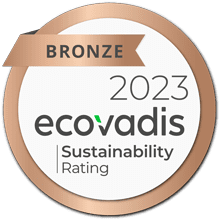“Inflection” point for KS12 schools
With governments facing towering debt in the aftermath of the pandemic, state education is likely to take a back seat. “This is an inflection point for education and successful private education should be moving forward even more strongly,” the expert told us. They noted that once parents start paying for private education, they “see it as an investment rather than a discretionary cost” — an “important human element in this business”.
While there were hints that the private sector was growing at a faster pace than state pre-pandemic, there has since been an increase in enquiries and enrolments in private schools. “Parents were getting involved and sitting alongside their children at home and seeing just how well the private schools were teaching their children during this terrible period. Parents who had been sending their children to the local state schools were picking up on this.”
However, for international schools, such as Inspired, Nord Anglia and Cognita, student mobility remains a sticking point. Investors should therefore focus on groups that concentrate on local populations rather than expatriates, we heard. Similarly, international teacher mobility, including a potential supply shortage, is expected to come into sharper focus. “There are lots of teachers around, but the quality of the teachers is becoming scarcer and I would also say that the quality and number of senior leaders is becoming scarcer.”
Changes to fees during the pandemic were also discussed in the Interview, with the expert of the view that, in some cases, they were discounted too much. “The best private schools discounted the least,” they said. “That is just one underlying truth that the best quality schools discount the least.”
The specialist also gave a figure of 4% as a sustainable yearly increase in fees over the medium term. “A school that is operating on a year-by-year basis, the best schools are giving the least discounts and anything above 5% of fee assistance, I think, should raise a question mark in the minds of an investor.”
To access all the human insights in Third Bridge Forum’s Global KS12 schools – H2 2021 update & competitive landscape Interview, click here to view the full transcript.
The information used in compiling this document has been obtained by Third Bridge from experts participating in Forum Interviews. Third Bridge does not warrant the accuracy of the information and has not independently verified it. It should not be regarded as a trade recommendation or form the basis of any investment decision.
For any enquiries, please contact sales@thirdbridge.com


